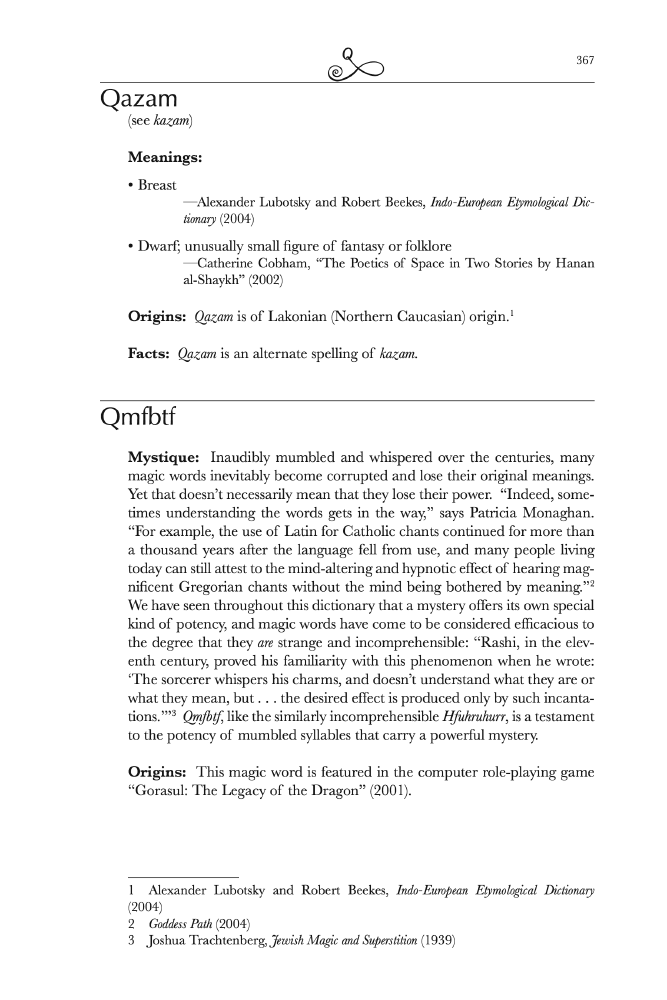
q 67
Qazam
(see kazam)
Meanings:
• Breast
-- Alexander Lubotsky and Robert Beekes, Indo-European Etymological Dictionary
(2004)
• Dwarf; unusually small figure of fantasy or folklore
-- Catherine Cobham, "The Poetics of Space in Two Stories by Hanan
al-Shaykh" (2002)
Origins: Qazam is of Lakonian (Northern Caucasian) origin.1
Facts: Qazam is an alternate spelling of kazam.
Qmfbtf
Mystique: Inaudibly mumbled and whispered over the centuries, many
magic words inevitably become corrupted and lose their original meanings.
Yet that doesn't necessarily mean that they lose their power. "Indeed, sometimes
understanding the words gets in the way," says Patricia Monaghan.
"For example, the use of Latin for Catholic chants continued for more than
a thousand years after the language fell from use, and many people living
today can still attest to the mind-altering and hypnotic effect of hearing mag
nificent Gregorian chants without the mind being bothered by meaning."
We have seen throughout this dictionary that a mystery offers its own special
kind of potency, and magic words have come to be considered efficacious to
the degree that they are strange and incomprehensible: "Rashi, in the eleventh
century, proved his familiarity with this phenomenon when he wrote:
'The sorcerer whispers his charms, and doesn't understand what they are or
what they mean, but . . . the desired effect is produced only by such incantations.'"
Qmfbtf, like the similarly incomprehensible Hfuhruhurr, is a testament
to the potency of mumbled syllables that carry a powerful mystery.
Origins: This magic word is featured in the computer role-playing game
"Gorasul: The Legacy of the Dragon" (2001).
1 Alexander Lubotsky and Robert Beekes, Indo-European Etymological Dictionary
(2004)
Goddess Path (2004)
Joshua Trachtenberg, Jewish Magic and Superstition (19 9)